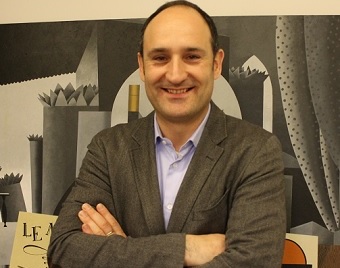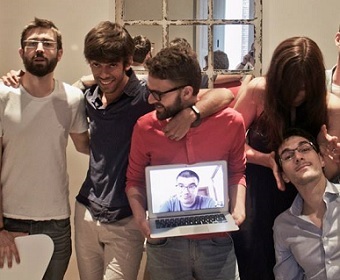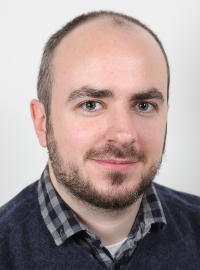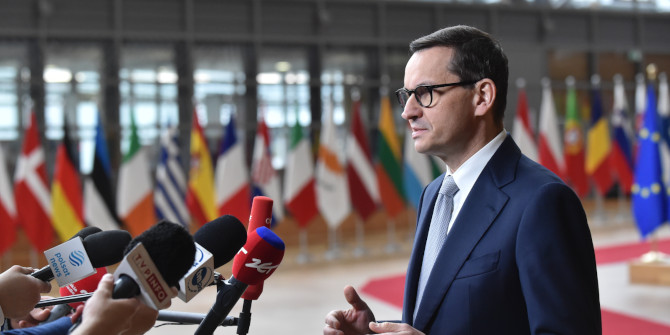The Spanish general election has proven to be fertile ground for interactions between politics and academia. Tena Prelec and Stuart Brown single out two phenomena that have developed in Spain over recent years: the progressive engagement of precariously-paid junior scholars in politics, and a thriving community of young academic commentators which supplements, and in some cases supplants, the work of the mainstream media. They note that the contribution of both groups has already improved the nature of the public debate in Spain, but ask whether this blurring of the lines between politics and academia may prove problematic in the long run.
The results of the Spanish elections on 20 December were of historic significance, with two new parties – Podemos and Ciudadanos (C’s) – challenging the traditionally dominant position of the centre-right People’s Party (PP) and centre-left Spanish Socialist Workers’ Party (PSOE). Yet the rise of Podemos and Ciudadanos was not only important for Spain’s party system, but also for its wider impact on the Spanish political process.
One of the most interesting elements of the new parties is the prominent role played by academics within their ranks. Podemos count numerous figures from academia among their senior members, most notably Pablo Iglesias, the party’s leader, who taught politics at the Complutense University of Madrid prior to his political career. Similarly, Ciudadanos have a solid footing in academia, with several established scholars and researchers exerting influence over the party’s programme: none more so than LSE Professor of Economics and Strategy, Luis Garicano.
Beyond the active participation of academics in parties, there has also been a broadening of Spanish commentary, with an influx of new online publications and new forums for discussion that have their roots in academia. But how new is this process for Spain and does it constitute a genuinely novel trend for Spanish politics?
An election propelled by academia?
In one sense, this mixing of academia and politics is nothing new for Spain. The PSOE, in particular, has a long history of drawing on universities to inform its policies and develop political strategies. Several PSOE Ministers have been affiliated to universities, such as José María Maravall, who was Minister of Education and Science between 1982 and 1988, José Ignacio Conde-Ruiz, who served in the Zapatero government from 2008 to 2010, and Miguel Sebastián, a former Professor at Complutense who was Minister of Energy from 2008 until 2011.

Similarly, while the PP has frequently counted on the input of figures from other sectors, such as business and finance, it has also shown a willingness to employ technical expertise. The Harvard-educated Álvaro Nadal, dubbed by some observers as Mariano Rajoy’s ‘Rasputin’ for his influence over PP economic policy, is one of the more prominent recent examples.
This process has been facilitated by the nature of academic contracts in Spain, which often allow individuals to pursue a period of employment outside of academia to provide so called ‘servicios especiales’ (special services) to political administrations, following which they are permitted to return to their previous positions. Such privileges are not universal, however, with those on more junior contracts denied the right to take on servicios especiales in the same way.
Indeed, it is from this class of junior academics that the so called 15-M movement, to which Podemos owes its origins, drew much of its intellectual impetus. Podemos itself is regularly described as ‘neo-Gramscian’ in its orientation, with the work of Ernesto Laclau and Chantal Mouffe cited as key references in understanding the party’s ideology; yet the generational divide between junior academics and their more senior colleagues is one that is replicated throughout many sectors of Spanish society, with youth unemployment remaining stubbornly around the 50 per cent mark in the aftermath of the crisis.
The participation by academics in Podemos therefore has very different roots from the traditional functions provided by scholars in the two mainstream parties. The path from academia into politics taken by Iglesias and his associates has been described eloquently by Jose Ignacio Torreblanca in his book Asaltar los Cielos and is, in the words of Eduard Roig, a Professor of Constitutional Law at the University of Barcelona who has previously worked for the PSOE, “a key shift in focus from simply providing expertise to playing a vital function in shaping the overall narrative of a party”.
This shift also has an expression in the rise of Ciudadanos, albeit in very different ways. If Podemos drew their inspiration from the plight of the junior academic, the intellectual basis for Ciudadanos stems from more established figures such as Garicano, as well as numerous academic advisors from high profile universities in the United States and elsewhere in Europe who provide support behind the scenes. The generational divide is also evident in the appeal of the party. While polling has previously indicated young Spanish voters have disproportionate levels of opposition to the PP, Ciudadanos do not suffer from the same penalty, in no small part because they avoid the PP’s brand of social-conservatism, which plays well with some older voters, but less so with younger generations.
Academia and the public debate
Perhaps equally relevant to the direct participation of academics in political parties is the role of scholars and researchers in shaping the country’s wider public debate. A number of academic-affiliated blogs and websites established in recent years have increasingly contributed to Spanish political commentary. These include Politikon, Nada es Gratis, Piedras de Papel, and Agenda Pública, among others.

Although there is little linking these publications beyond a general orientation toward evidence-based, rather than partisan, analysis, what is significant about many of them is that they are run by very young academics, including those who are still doctoral students. This new generation is plugged into the online debate and is increasingly driving the conversation on social networks, supplementing, and in some cases supplanting, the commentary provided by established but more partisan Spanish media outlets.
Politikon describes its rationale as providing an outlet for evidence-based political analysis to bridge the gap between academia, the media and Spanish citizens. According to one of the site’s key figures, Jorge Galindo, when they began in 2010 “such a space simply didn’t exist in Spain, so we decided to create it for ourselves”. Politikon and other sites, while still small in terms of their reach when compared with traditional media outlets, have grown in size and influence in the intervening period. Indeed, Galindo states that he and his colleagues were contacted by all four major parties during the 2015 election campaign and now regularly feature on national television and international media coverage: a clear sign that they have filled a vacuum in existing commentary.
Yet this blurring of the lines between academia and politics nevertheless carries its own set of risks. Juan Rodriguez Teruel, a Professor of Political Science at the University of Valencia and one of the founders of Agenda Pública, has pointed at the phenomenon of the so called ‘tertulias’ – televised debates led by scholars who assume the role of host, though often without the necessary detachment from the subject under discussion – as illustrative of these dangers. For Teruel, these debates, of which ‘La Tuerka’, presented by Pablo Iglesias, is one of the foremost examples, run the risk of becoming highly partisan in their approach and can therefore undermine, rather than improve, the quality of the public debate.
As such, while the input and engagement of young academics has made a visible contribution to political discussions in Spain during the general election, the question for future elections may well be whether they can continue to transform the debate without becoming a part of it themselves.
Please read our comments policy before commenting.
Note: This article gives the views of the authors, and not the position of EUROPP – European Politics and Policy, nor of the London School of Economics.
_________________________________
 Tena Prelec – LSE / University of Sussex
Tena Prelec – LSE / University of Sussex
Tena Prelec is an Editor of EUROPP. She is a doctoral researcher at the University of Sussex and keeps an active involvement in the LSE’s research unit on South Eastern Europe, LSEE.
–
 Stuart Brown – LSE / University of East Anglia
Stuart Brown – LSE / University of East Anglia
Stuart Brown is the Managing Editor of EUROPP. He is a Research Associate at the LSE’s Public Policy Group and a Senior Research Associate at the University of East Anglia.






I liked the authors’ critical interpretation of the Spanish elections.
I will use an acknowledged quote from this article in my own article on the Spanish elections for submission to the Australian Independent Media Network (AIMN) which is accessible through Google.
With the hegemony of the market model of development in most countries, it is encouraging to watch the progress of generational change in the New Politics of Spain during 2015.
Traditional progressive activists have a lot to learn from the collective wisdom of Pedro Sanchez, Pablo Iglesias,Albert Rivera and their enthusiastic support networks which are touched upon in this article.
The potential changes are as daring as were the results on 16 February 1936.
Spain is the place to watch for the evolution of post-capitalism in the wake of the recent UN Climate Conference in Parls.
Denis Bright in Brisbane, Australia (Previous articles are accessible on Facebook and AIMN)
Podemos may not be a part of the new Coalition between the PSOE, C’s and progressive sections of the PP . The new coalition can take up its reformist agenda with the support of some moderate regional Deputies.
Generational change requires Mariano Rajoy to stand aside because his approach was far too ideological for the change agenda which has been displayed on 20 December.
Denis Bright in Brisbane, Australia (Previous articles are accessible on Facebook and AIMN)